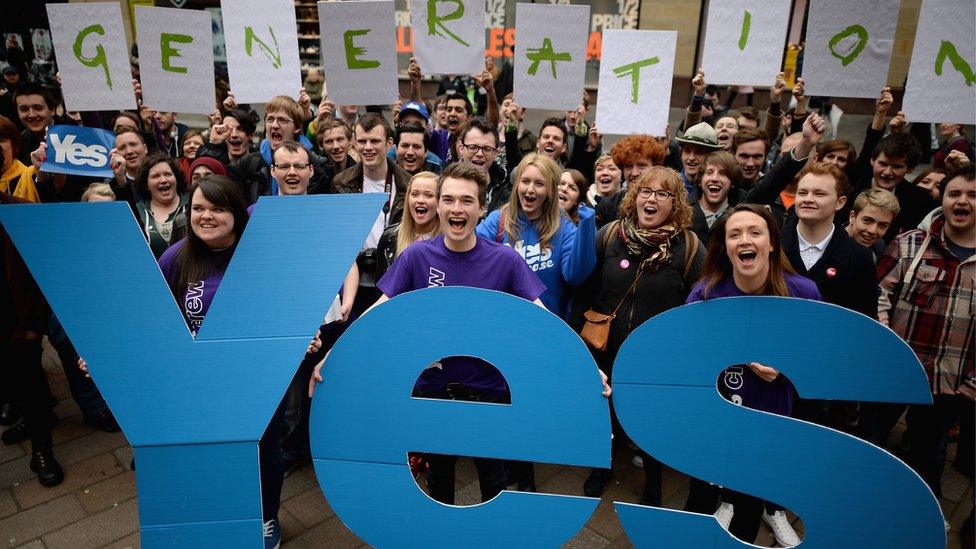How virus has changed the way reporters work
- Published
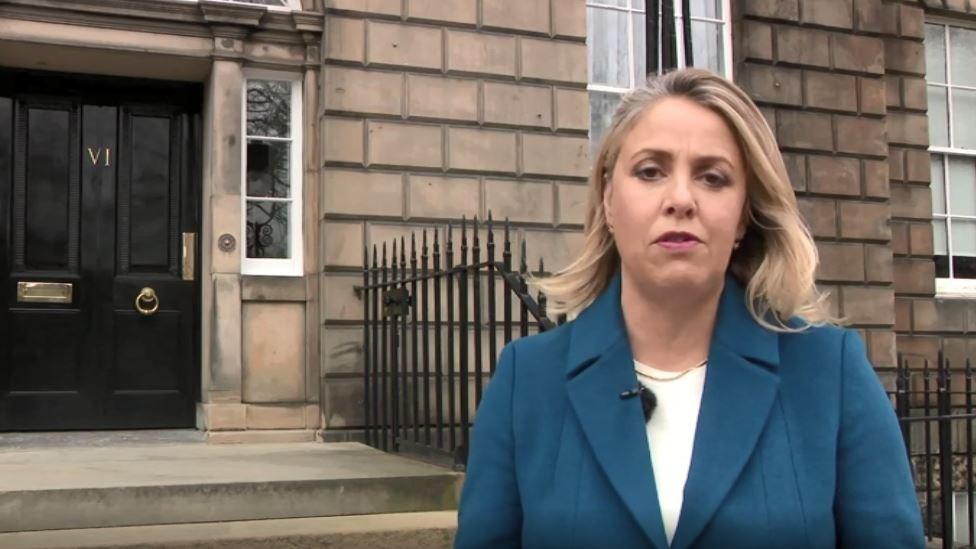
Viewers will need to get used to seeing fewer reporters out on location during the coronavirus crisis
Kneeling on the sofa with a duvet over my head, curtains closed in the middle of the day, recording a voice track into my mobile phone which I then email to the video editor.
This is what broadcasting from home looks like. It's not quite as cosy as it sounds. But it's not impossible either and this will be the new normal for a long time for many broadcast journalists.
How much difference will the fact that many of us are stuck at home make to how we keep you informed about what's going on?
We have all become used to seeing experts and interviewees appearing in the TV news via Skype or FaceTime rather than coming into the studio. Does it matter if you see BBC reporters conducting themselves the same way?
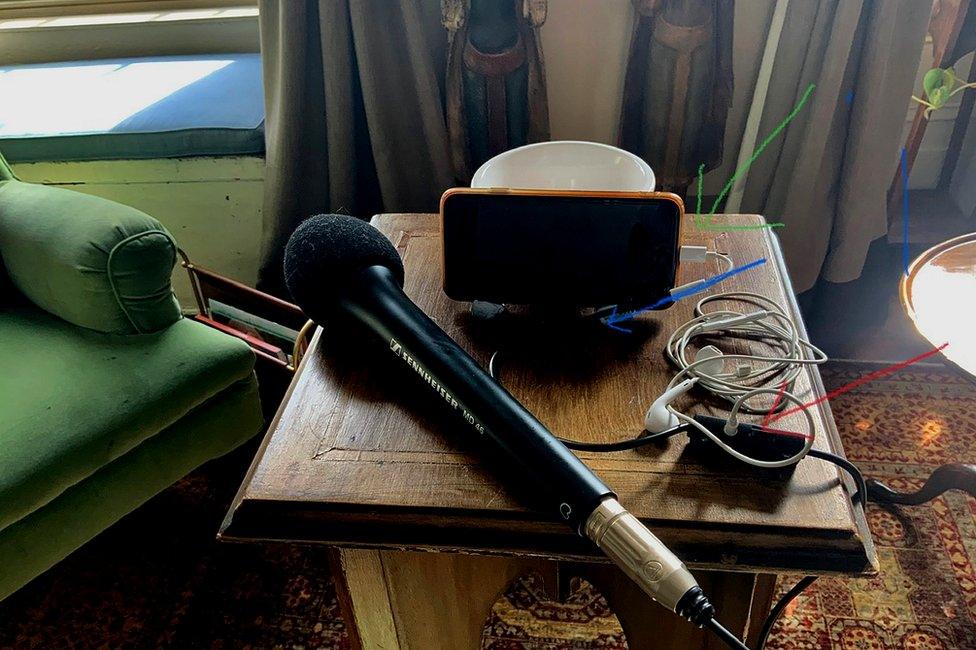
Sarah, like many other BBC broadcasters, has set up a makeshift home studio
The truth is we often report on events we didn't see with our own eyes. Sometimes from many miles away.
Throughout my career I've spent months in UK-based edit suites cutting together pictures filmed in Iraq and Afghanistan and describing what's happened there that as best I can understand it from the copy set in by news agency reporters on the ground.
I've never once pretended to be somewhere I wasn't, but I've also not stressed how far from the action I was.
Now there will be no hiding the fact that many of us have not left the house in pursuit of the story. In fact it is our duty to emphasise that many of us have been outside as infrequently as possible.
How much will it inhibit our reporting if we can't get to a location? That in many ways depends on the kind of story you are covering.
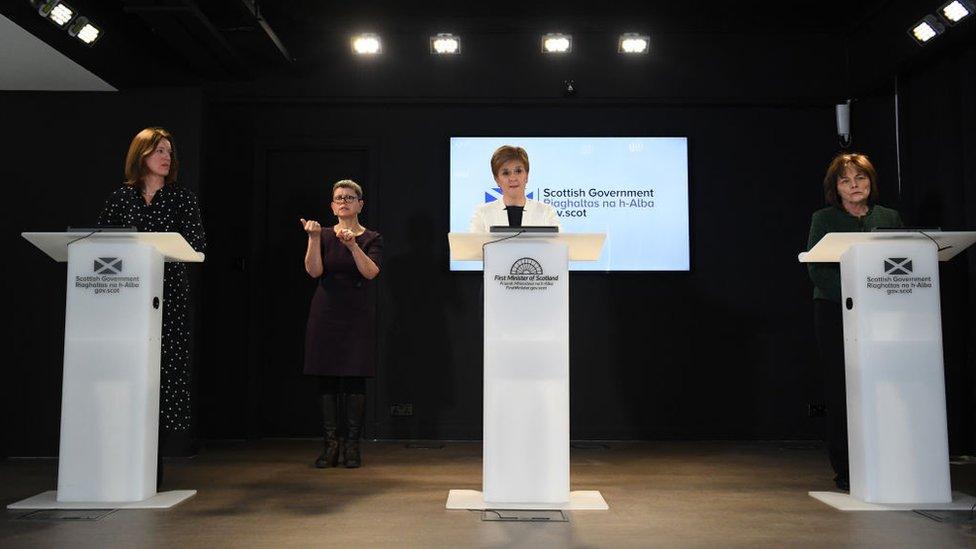
Journalists are able to watch daily Scottish government briefings on coronavirus without actually attending
Eyewitness reports of conditions inside refugee camps can't really be replaced with a Skype call. But when it comes to political reporting, the truth is that much of it is done on the phone, by text and email anyway.
Meeting people face to face occasionally is essential for establishing relationships. Many good stories have been uncovered by hanging around in parliamentary lobbies or even the right pubs.
But you don't always need to see someone in real life every time you need to check a story or clarify a line. It may feel weird to be speaking to people from the kitchen rather than from the office, but it doesn't change the quality of the information I'm able to gleam.
In TV, we always feel obligated to be seen to be somewhere relevant to the story. Many times I've stood outside the Scottish Parliament and delivered my thoughts into the camera despite not having been inside the building all day.
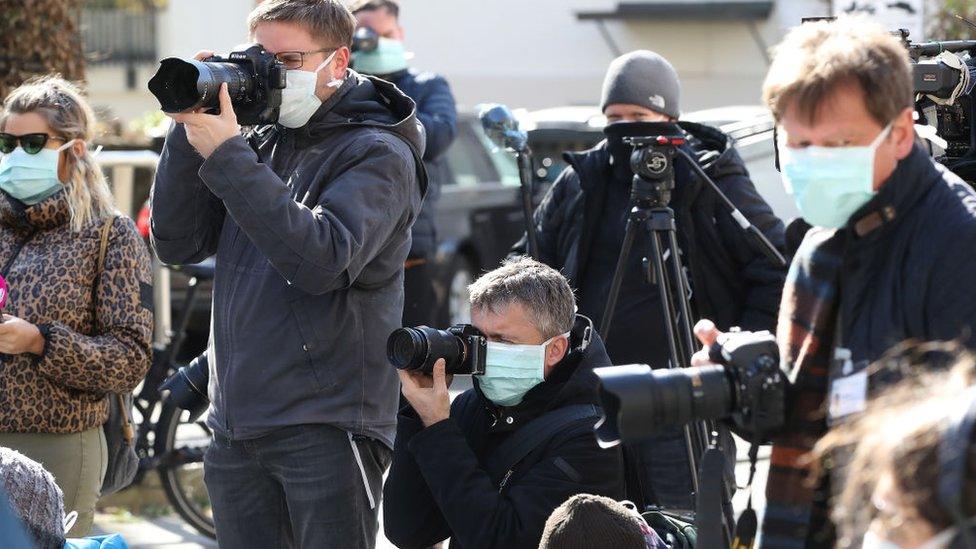
Journalists across the world are having to weigh up the risks with the need to tell their audiences what is happening
I've gathered all the information I need from the office by watching parliamentary debates on video feeds, reading press releases that have been emailed to me and communicating with sources on the phone or via text.
Now I can still do all of that - except travel to Edinburgh and stand outside Holyrood. Will my reporting appear less credible as a result?
We are going to have to trust our viewers and listeners to believe that just because we aren't always physically present, that doesn't mean we don't know what's going on.
What matters is that I am still able to speak to many of the people who make decisions about how our country is run, and I don't always have to see them to do so.
We are also now cooperating across the BBC and with other broadcasters to an unprecedented degree. Sharing material so that lots of different camera operators and reporters don't all have to attend the same events. Maybe we can keep working this way in years to come.
I'm only on day four of social isolation and frankly I'd welcome the distraction of going to any press conference right now.
But by the end of this crisis we may have had to rethink what is the best use of our time and resources, and that the way we report the news will have changed forever.
- Published31 January 2020
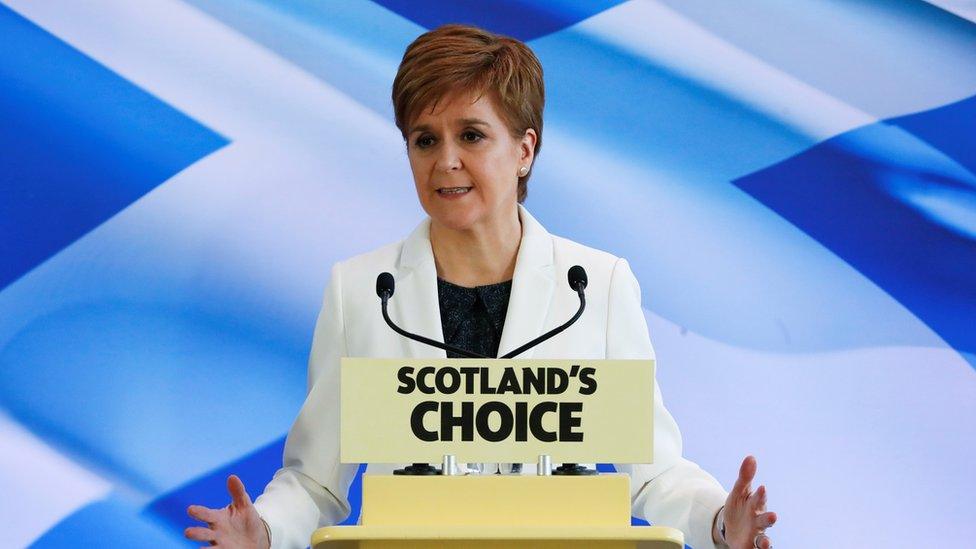
- Published23 November 2022
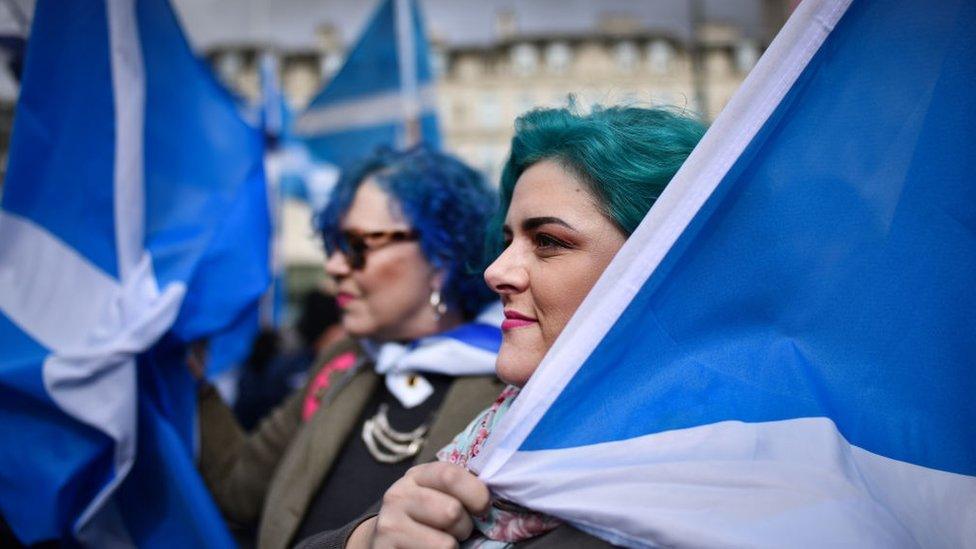
- Published16 January 2020
